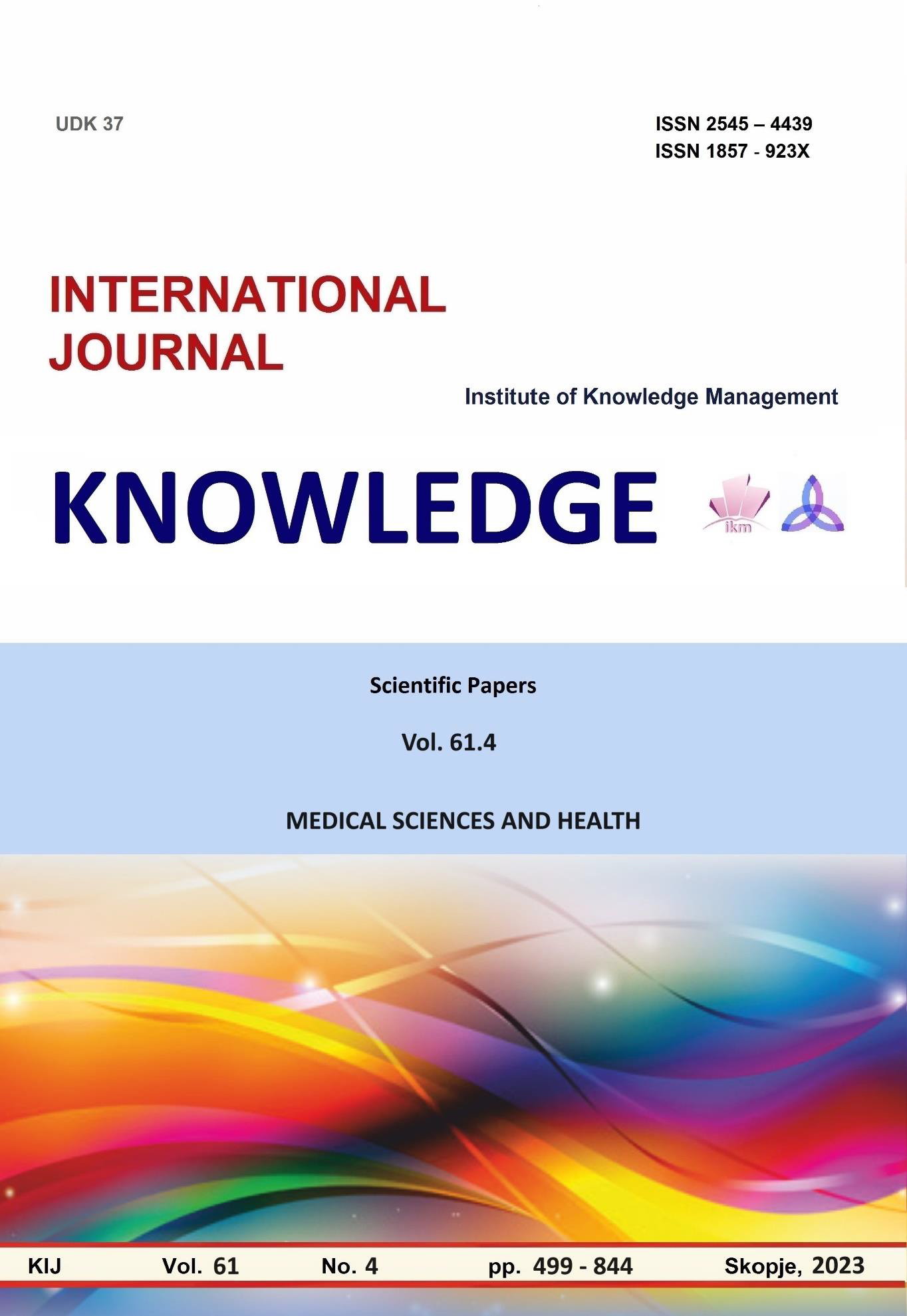COMPARISON OF THERAPEUTIC EFFECTS OF FREE GINGIVAL GRAFT VERSUS MUCOGRAFT IN MUCOGINGIVAL ESTHETIC SURGERY – CYTOLOGICAL EVALUATION
COMPARISON OF THERAPEUTIC EFFECTS OF FREE GINGIVAL GRAFT VERSUS MUCOGRAFT IN MUCOGINGIVAL ESTHETIC SURGERY – CYTOLOGICAL EVALUATION
Author(s): Zaklina Menceva, Aneta Terzievska, Daniela Veleska Stevkovska, Biljana Evrosimovska, Stavre Trajculeski, Biljana RusevskaSubject(s): Social Sciences, Health and medicine and law
Published by: Scientific Institute of Management and Knowledge
Keywords: Gingival recession;gingival graft;cytological analysis;graduation index
Summary/Abstract: Gingival recession is not a disease, but it is defined as an apical dislocation of the marginal gingiva towards the enamel-cement border, a condition that is conditioned primarily by morphology and structure, poor oral hygiene (rough brushing of the teeth) and eventual functional overload (traumatic occlusion). The aim of this study was to make a cytological verification and comparison in the intervened segment after the application of the two types of graft: free gingival graft and mucograft. Methodology. With the cytological analysis, the maturation index of the cells was determined by taking a swab with the help of brushes, and the material taken was applied to glass slides that were stained according to the method of Papanikolaou and Gimza, which determined the maturation index, which implies a percentage ratio of basal, parabasal, intermediate and superficial squamous cells, which show us the surface healing of the injured gingiva in relation to the surrounding tissue in both groups of 30 patients who were treated with the same surgical technique but a different membrane. Results. In the cytological research, the graduation index was determined as a percentage ratio of parabasal, intermediate and superficial, ie squamous cells from smears that were taken postoperatively on the 7th, 14th and 30th day. With multiple linear regression, it was determined that gender and age as parameters together affect the variability of all three types of cells from the graduation index: parabasal, intermediate and superficial, but none of them is a significant predictor of the variability of the finding on day 30 from the intervention. The statistical monitoring of the graduation index in both groups showed that the surface healing of the epithelium was faster in the group of patients who were operated with Mucograft, but without significant significance. Conclusion. Cytological analysis showed a faster maturation index, a more robust surface healing process in the sample treated with Mucograft, but no significance was registered. Recommendation and Additional date. Cytological examinations are always recommended as non-invasive methods that are favorable for patients and do not disturb their comfort.
Journal: Knowledge - International Journal
- Issue Year: 61/2023
- Issue No: 4
- Page Range: 577-580
- Page Count: 4
- Language: English

